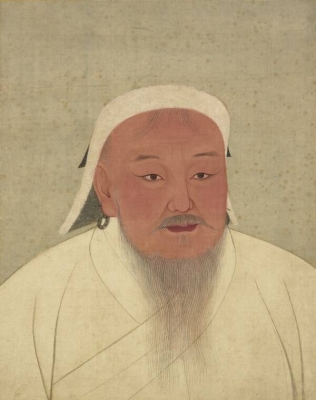
Kublai Khan (1216-940) was the greatest, most intelligent and most cultured of the great Mongol leaders of Asia. He became ruler over more people than had ever before acknowledged allegiance to one man.
Kublai was the grandson of Genghis Khan, the great Mongol conqueror who founded a vast empire as the leader of a horde of fierce nomadic horsemen. As a child, he formed an ambition to complete the conquest of China, started, by his ancestors. This he achieved in 1279, establishing himself at Cambaluc (modern Peking), assuming the title of Emperor and founding the Yuan dynasty, which ruled China until 1368.
In his efforts to expand the empire of the Great Khan, Kublai owed much of his success to the great generalship of Bayan, his commander-in chief. Bayan was described as “the hundred-eyed” because of his ability to see every aspect of a situation before drawing up and executing his military plans. Kublai also hoped to conquer Japan, but the Mongols, though wonderful troops on horseback, were bad sailors and the attempted invasion ended in disaster. Nevertheless, his dominions stretched across Asia from the Arctic Ocean to the Malay Peninsula and from Korea to Asia Minor and the border of Hungary.
Kublai Khan adopted the Chinese way of life and made Buddhism the state religion. Throughout his lands the barriers came down and the highways were opened to the spread of commerce and knowledge between East and West. His fame attracted scholars, merchants, adventurers and envoys from many countries to the Chinese capital. Among them was the Venetian traveller Marco Polo who spent 17 years in the service of the Khan, and whose book describing the splendours of Kublai’s court fired the imagination of much later explores and led eventually to the discovery of America.
Picture Credit : Google




